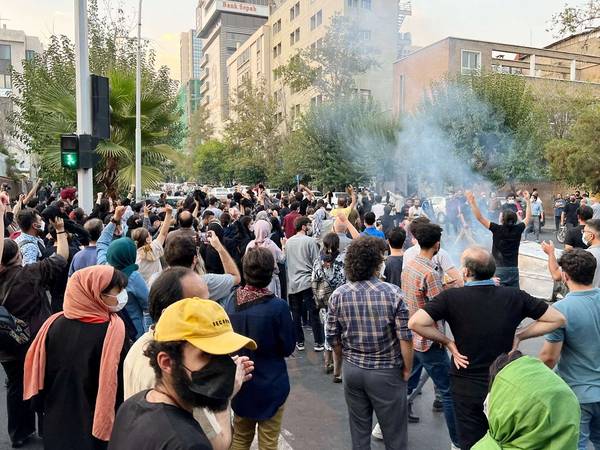As daily protests by various groups continue in Iran, the government spokeswoman hinted that, for the first time since the 1979 Islamic Revolution, the Pezeshkian administration might consider respecting the right to protest.
The Iranian constitution formally recognizes the right to peaceful assembly and demonstration. However, many of its provisions are disregarded by the government. Article 27 specifically permits public gatherings and marches, provided they are unarmed and do not contravene Islamic principles.
While supporters of the Islamic Republic can hold large rallies for causes like Palestine or religious and political events, ordinary citizens—such as students, workers, and teachers—are consistently denied permits. This allows the government to label their protests as “unauthorized” and crack down on participants with arrests.
Government spokeswoman Fatemeh Mohajerani told media in Tehran that while the government views the law positively, it is awaiting an "amendment" to guarantee the freedom to hold political protests—albeit "in a different way." While this appears promising, it adds ambiguity to a constitutional article that is otherwise clear and straightforward.
The reference, however, might pertain not to the constitution but to a law regulating political parties, which requires interior ministry approval for gatherings. This regulation has often been cited as a justification for banning demonstrations.
Iranian media have interpreted Mohajerani's statement as a sign that the government is preparing to address potential political protests. Authorities expect demonstrations, particularly in Tehran, following significant political or economic developments—or even major football matches.
Many Iranians took to social media, reporting a heavy military presence in Tehran as the country awaited a November 21 resolution by the IAEA, the UN’s nuclear watchdog, against the Islamic Republic. The government likely feared the resolution could undermine its authority and embolden dissidents. However, no significant protests occurred. The heightened security may have simply been a show of force amid ongoing blackouts and rising prices.
Mohajerani, however, told the press that the Pezeshkian Administration recognizes the public's right to protest and that it is seriously looking forward to an amendment to be made in the law by the parliament. However, she did not say what was in the text of the law that needed revision.
Recently there have been more peaceful protests in front of the parliament as well as several other gatherings by pensioners and teachers who are unhappy about their delayed pay adjustment. Interestingly, while supporters of the government censorship of the internet staged two demonstrations without seeking anyone's permission, the Interior Minister said those who call for lifting the ban on social media will not be allowed to protest although they have applied for a permit.
Mohajerani stated that a bill addressing protests had been sent to the Majles for amendment by the previous administration under Raisi. However, the Rouhani administration before that had also sought to revise the law. Rouhani, whose abrupt fuel price hike in 2019 triggered widespread protests, had called for legislation to permit peaceful demonstrations after security forces killed hundreds of protesters and imprisoned many others.
While the Majles had previously refused to amend the law under both Raisi and Rouhani, it has now agreed to review it. This shift may be due to lawmakers' confidence that their decisions are unlikely to affect their electability, with the next election still three years away.
After the 2019 protests, the Rouhani administration proposed creating a Hyde Park-style venue in Tehran for peaceful demonstrations, but the plan was blocked by the Administrative Justice Court. Critics argue that successive governments only consider facilitating peaceful protests in the wake of major social unrest, abandoning such plans once the protests subside.
Some observers suggest that the delays in passing relevant legislation and the Interior Ministry's refusal to issue protest permits stem from the nature of slogans chanted during the 2019 and 2022 protests, which targeted Iran’s leadership and called for the overthrow of the Islamic Republic.
